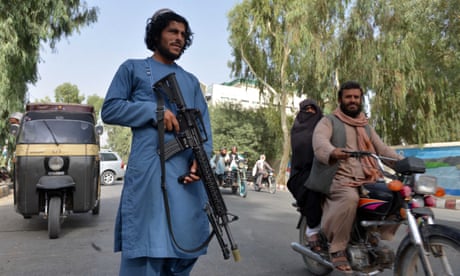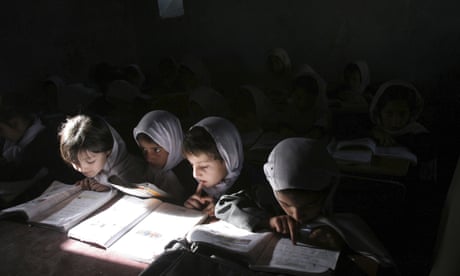The Taliban have effectively banned girls from secondary education in Afghanistan, by ordering high schools to re-open only for boys.
Girls were not mentioned in Friday’s announcement, which means boys will be back at their desks next week after a one-month hiatus, while their sisters will still be stuck at home.
The Taliban education ministry said secondary school classes for boys in grades seven to 12 would resume on Saturday, the start of the Afghan week. “All male teachers and students should attend their educational institutions,” the statement said. The future of girls and female teachers, stuck at home since the Taliban took control, was not addressed.
The edict makes Afghanistan the only country on earth to bar half its population from getting a secondary education.
In a further sign that the recently announced Taliban government is tightening restrictions on women, the former ministry of women’s affairs building in Kabul has been handed over to the newly re-established ministry for the prevention of vice and promotion of virtue.
This was the group’s feared enforcer in the 1990s, charged with beating women who violated bars on everything from going out in public without a male guardian to an obsessively prescriptive dress code that even forbade high heels.

The decision on education has worrying echoes of the tactics the Taliban used in the 1990s, when they last ruled Afghanistan, to bar girls from school without issuing a formal prohibition.
“Education and literacy are so strongly valued in Islam that the Taliban could not ban girls schools on Islamic grounds, so they always said they would open them when security improved. It never did. They never opened the schools,” said Kate Clark, co-director of the Afghanistan Analysts Network, who worked in Afghanistan at the time.

That decision did not spell the end of education for women, with some small classes in homes, and schools run in provinces by charities, she said. However, it did turn the basic childhood right to seek an education into a high-stakes gamble.



















